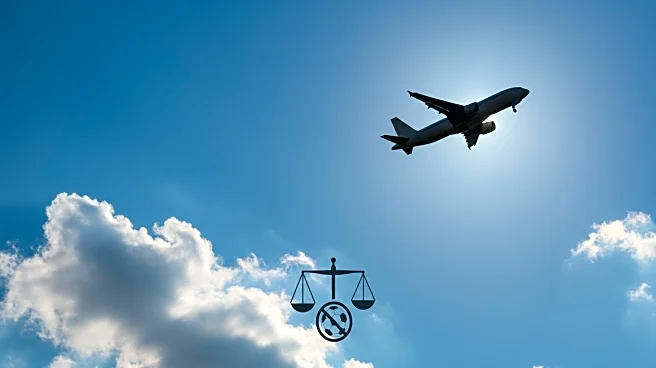What's Happening?
Southwest Airlines is implementing a new refund policy for plus-size passengers who purchase two seats, effective January 27, 2025. The policy requires that flights must have at least one open seat, both seats must be purchased in the same fare class, and refund requests must be made within 90 days of travel. This change coincides with Southwest's transition to assigned seating on all flights. Previously, Southwest encouraged plus-size passengers to buy two seats and apply for a refund for the second fare, but the new policy imposes stricter conditions for reimbursement. The airline defines a single seat as the space between two lowered armrests, and passengers unable to fit within this space must purchase an additional ticket.
Why It's Important?
The revised policy may significantly affect plus-size travelers, who have relied on Southwest's previous refund system for affordable travel. The new conditions could lead to increased travel costs, as passengers may have to pay for two seats without guaranteed refunds. This change may prompt some travelers to consider alternative airlines, potentially impacting Southwest's customer base. The policy shift reflects a broader trend of airlines aligning their practices with industry standards, which may affect consumer choice and accessibility for passengers requiring extra space.
What's Next?
As the policy takes effect, Southwest may face backlash from affected passengers and advocacy groups. Travelers will need to be more vigilant about flight availability to ensure eligibility for refunds. The airline's move to assigned seating may also alter passenger dynamics, as travelers adjust to the new system. Southwest's decision to update its policies could lead to further changes in its service offerings, as it seeks to balance customer needs with operational efficiency.
Beyond the Headlines
The policy change raises questions about inclusivity and accessibility in air travel. Plus-size passengers may experience increased anxiety and financial strain, highlighting the need for airlines to consider diverse passenger needs. The shift may also spark discussions on the ethical implications of airline policies that disproportionately affect certain groups, potentially influencing future industry standards.











